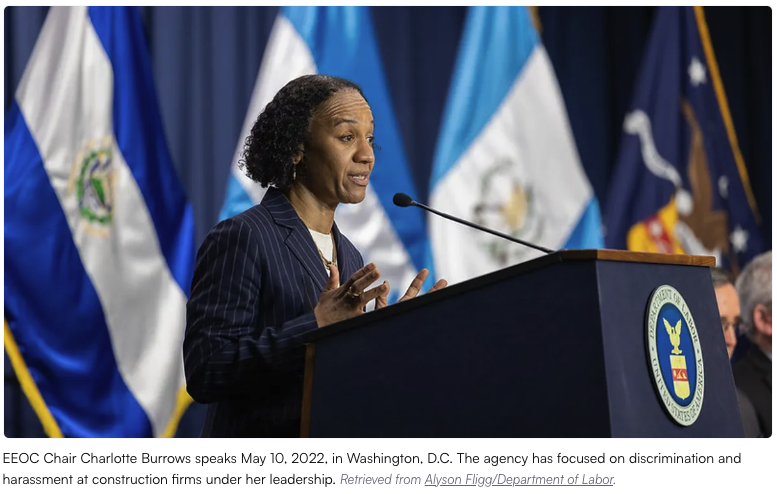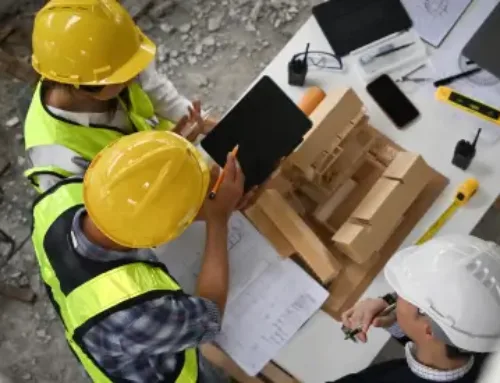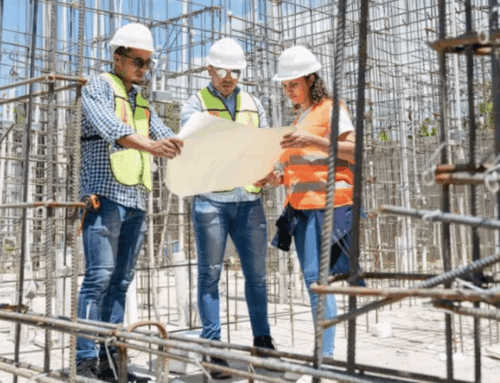Asphalt Paving Systems Settles Race Bias Charge for $1.25 Million: A Wake-Up Call for the Construction Industry
In a significant move toward addressing racial discrimination within the construction sector, Asphalt Paving Systems (APS) has agreed to pay $1.25 million to settle a race bias lawsuit brought by the U.S. Equal Employment Opportunity Commission (EEOC). This landmark settlement shines a spotlight on the pervasive challenges of racism in the industry and underscores the EEOC’s commitment to tackling such issues.
The Case: A Glimpse into Systemic Racism in Construction
The lawsuit against Asphalt Paving Systems stemmed from allegations the company engaged in racially discriminatory practices, including a hostile work environment for black employees, discriminatory assignments, and denial of promotions based on race. Workers reported enduring racial slurs and harassment from supervisors and colleagues. These allegations are not isolated; they reflect a broader, long and systemic issue within the construction industry, where minority workers have historically faced significant barriers and racial inequality.
The $1.25 million settlement sends a clear message racial discrimination cannot be tolerated. However, monetary settlements alone are not enough. As part of the agreement, Asphalt Paving Systems will also be required to implement reforms aimed at fostering a more inclusive and equitable work environment, such as diversity training for managers and supervisors, policy changes, and greater reporting mechanisms for employees who experience discrimination.
Implications for the Construction Industry
The construction industry has long been criticized for its lack of diversity and inclusion. Despite being one of the largest sectors in the U.S. economy, it has struggled to foster racial equity. According to the Bureau of Labor Statistics, Black workers represent only about 6% of the construction workforce, while Hispanic and Latino workers make up 30%. Although there has been progress in hiring more diverse employees, Black workers often remain underrepresented, particularly in leadership roles.
The settlement against APS is a critical reminder for construction firms across the country that diversity, equity, and inclusion (DEI) are no longer optional. They are legal and moral imperatives. Companies that fail to create safe, inclusive, and equitable workplaces face the risk of lawsuits, reputational damage, and financial penalties.
The Push for Change: DEI in the Construction Sector
The Asphalt Paving Systems settlement is part of a broader push by the EEOC to combat systemic racism in industries that have traditionally lagged in diversity and inclusion efforts. In recent years, the construction industry has seen growing pressure from advocacy groups, governmental bodies, and stakeholders to address disparities in hiring, promotion, and treatment of minority employees.
A key challenge in advancing DEI in construction lies in the ingrained culture of the industry, which is often male-dominated, with deeply rooted traditions that can resist change. Many construction firms, particularly smaller and mid-sized ones, have historically lacked formal diversity programs. However, as seen in this case, the costs of neglecting DEI initiatives can be steep.
Moving Forward: How Construction Companies Can Lead in DEI
The settlement serves as a catalyst for the construction industry to take proactive steps toward building more inclusive workplaces. To avoid similar pitfalls, companies should prioritize the following:
- **Creating Comprehensive DEI Programs:** Firms must move beyond symbolic diversity statements and actively invest in policies that promote racial equity. This includes recruiting diverse talent, offering leadership training, and promoting inclusive workplace cultures.
- **Providing Bias and Anti-Racism Training:** A key component of the APS settlement involves mandatory diversity and anti-racism training for managers and supervisors. This training helps to dismantle harmful stereotypes and prevent discriminatory behaviors before they take root.
- **Enforcing Clear Reporting and Accountability Structures:** Companies must establish clear, transparent systems for reporting discrimination, coupled with strong enforcement mechanisms. Employees need to feel safe in reporting incidents without fear of retaliation.
- **Leadership Accountability:** Creating a diverse workforce starts at the top. Company leaders must be accountable for DEI efforts, setting measurable goals and regularly evaluating progress. This also involves diversifying leadership teams to ensure minority voices are represented in decision-making.
- **Partnerships with Community Organizations:** To improve diversity in hiring, construction companies can collaborate with community organizations, unions, and training programs that specialize in preparing minority workers for the construction trades. When the entire community comes is united in equitable and inclusive practices it sends a clear message to the workforce of a no toleration policy for racial bias.
A New Era of Accountability
The Asphalt Paving Systems settlement marks a pivotal moment for the construction industry, which is grappling with its historical lack of diversity and inclusivity. With heightened scrutiny from regulatory bodies like the EEOC and growing societal pressure for racial justice, construction companies must prioritize DEI efforts. Failure to do so not only risks legal consequences but also alienates a modern workforce and client base increasingly aligned with values of fairness and inclusion.
In this new era of accountability, construction firms that embrace diversity and inclusion will not only avoid legal pitfalls but also position themselves as leaders in an evolving industry. As the workforce becomes more diverse, companies that actively promote equity will benefit from a wider talent pool, greater innovation, and improved employee satisfaction. The APS settlement is a powerful reminder that DEI is no longer an afterthought—it’s an essential business strategy for the future of the construction industry.
Authored by:
Kelly Jackson, Executive Director
SLC3
“The SLC3 is fully committed as an association to emphasizing best practices as it relates to racial bias in our industry. There should be zero tolerance for bias from the C-Suite to the boots on the ground. I penned this article to represent the “right” that has occurred in this case so we can move forward and do the right things for racial, gender, and even age related biases. I have made comments that I regret as I believe we all probably have as well. It was meant to be harmless but not everyone feels the same depending on their own experiences. I however cannot speak for all our members as I share this, but, I do speak for the SCL3 as we are fully committed to do what we can for DEI and for our third pillar, equity empowerment.”
Sources:
Engineering News Record, EEOC, HRMorning.com, HRdrive.com, Vitallaw.com






